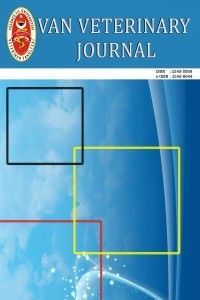
Van Veterinary Journal
Yazarlar: Volkan KOŞAL, Fetih GÜLYÜZ, Barış Atalay USLU
Konular:Veteriner Hekimlik
DOI:10.36483/vanvetj.841059
Anahtar Kelimeler:Fertility,Synchronization,Body Condition Score,Cattle
Özet: The most important factors affecting the success of artificial insemination are the balanced nutrition of the animals and the determination of estrus. Malnutrition causes a decrease in the Body Condition Score (BCS). Low BCS affects the deterioration of the metabolism of cows which has a primary influence on estrus and offspring productivity. In this study, estrus and ovulation synchronization was performed by forming three study groups from cows and heifers with a maximum BCS average of 2.95. Cows that were 3 - 6 years old were included in Group I (n = 12) (BCS: 2.95 ± 0.62), heifers between 18-22 months of age and showing at least 1 estrus were included in Group II (n = 13) (BCS: 2.03 ± 0.37) and heifers between 18-22 months of age were included in Group III (n = 45) (BCS: 1.57 ± 0.38). Progesterone Implants remained in the vagina for 10 days in all groups. One day before removal of implants, 2000 IU PMSG and 5 ml PGF2α was injected to all groups. All animals were injected with 1500 IU hCG 24 hours after the implants were removed. After removal of implants, all animals were inseminated at 48 and 72 hours regardless of estrus symptoms. According to the groups, pregnancy rates of 58.33%, 38.46% and 13.33% were obtained, respectively. When the results were compared, it was found that the BCS rate and pregnancy rates were parallel (P<0.01). In line with these results, the importance of feeding and giving birth before has been revealed.